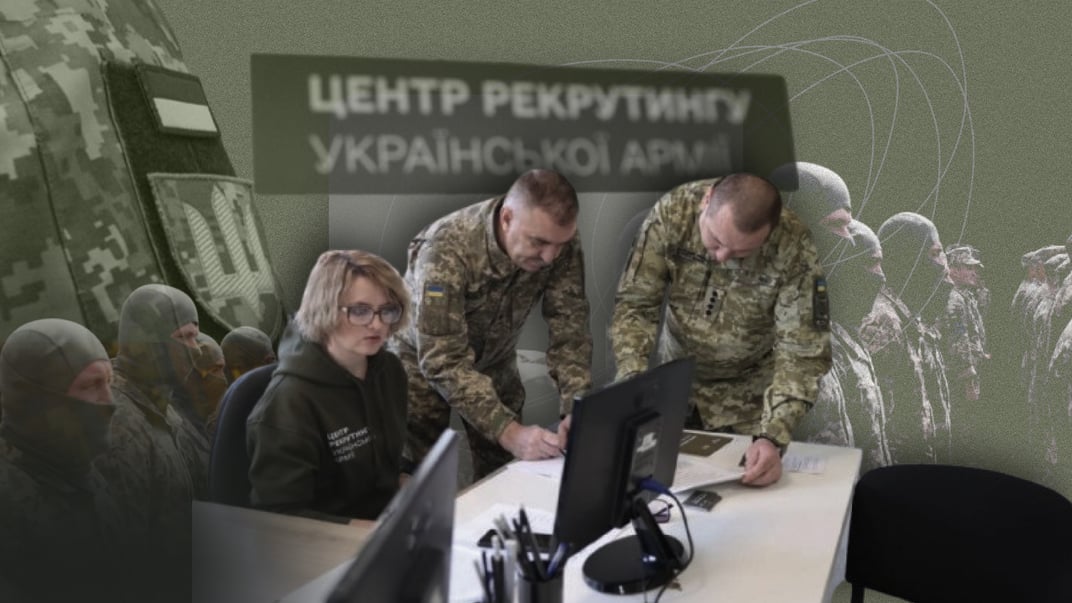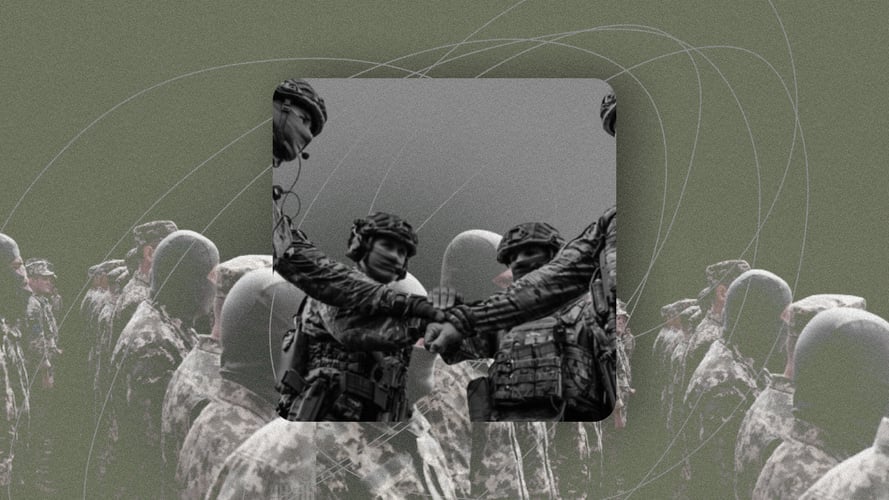Will there be no more "buzification"? Can the military unit recruiters successfully replace the Territorial Recruitment Centers?

Military Recruiting in a New Light
Previously, the responsibility for recruiting in military units fell to the structure of moral and psychological support. The same individuals were tasked with identifying potential recruits, awarding military personnel, investigating disciplinary violations, and monitoring the mental health of soldiers.
“Today someone had a drink, someone might have fought with another, while someone else needs to be awarded the title of Hero. It's unclear when they will conduct this recruiting. This is our standard practice. You have 24 hours in a day, and you can even organize a 25th hour for recruiting.”Pavel Narozhny, military expert
The recruiting agency Lobby X noted the dissatisfaction of citizens attempting to enlist in the Armed Forces of Ukraine (AFU), as they often did not receive feedback from brigades. “This is partly due to the fact that the people working on this from military units do so in their spare time from their main duties,” said the agency's director Vladislav Grezev.
Now, each combat unit is expected to have its own recruiting division. According to a source from hromadske in the General Staff, brigades have been tasked with fulfilling Sirsky's order by the end of this year.
Moreover, there should be not just one recruiter, but a group of 3 to 7 individuals depending on the brigade's size, our informant mentioned. He believes that every brigade commander “can afford” to allocate such a number.
Currently, the most successful in recruiting is the Third Separate Assault Brigade. Today, 70-80% of the military personnel are volunteers who either came through recruiting or chose their brigade at the training center and underwent a separate selection process, shared Vladimir Davidyuk, head of the Kyiv recruiting center for this brigade, with hromadske.
However, most combat units are still awaiting assistance from the Territorial Recruitment Centers (TRC) and Staffing Services (SS). The recruiting center was established relatively recently in the 81st Separate Air Assault Brigade, so people primarily come through territorial recruitment centers, said press secretary Valeria Skorik to hromadske.
In contrast, the 93rd Separate Mechanized Brigade “Kholodny Yar” has been engaged in recruiting for about 10 months. Here, the main sergeants of the units recruit personnel themselves. Commanders are aware of who is being recruited, and volunteers know under whose leadership they will work.
“They rotate with us. They go for a month, work, and then return to the area. This is how it will happen because it's difficult to conduct recruiting for someone who has not been in combat, who does not know what it is like.”Ivan Buryak, chief sergeant of the 93rd Separate Mechanized Brigade “Kholodny Yar”

Billboards Won't Fund Themselves
In all the brigades that hromadske spoke with, the order regarding staff recruiters is viewed positively. The question remains how lesser-known combat units can attract individuals.
“There will be competition among units. Competition will inevitably lead to quality — both in the recruiting process itself and in the way military units relate to people. Because populism, photographs, and videos won't always draw people in. Actions and the truthfulness of your words are also needed,” believes Ivan Buryak.
Expert Pavel Narozhny suggests that specific KPI might be set for staff recruiters regarding the number of individuals they need to attract to their brigades within a specified timeframe — a week or a month. Consequently, brigades will be compelled to compete with one another.
“And if a person travels to the Recruiting Center, sees 25 billboards for the Third Assault Brigade, 5 billboards for the Fifth Assault Brigade, but does not see any for the 32nd OMB, he arrives and says, ‘Well, I don’t know this brigade.’ But personnel are needed in all brigades,” pointed out Narozhny.
Vladislav Grezev emphasizes that each brigade should work more effectively on its media presence, developing its press services. According to him, it is essential to “highlight” the commanders, showcase their strengths, and reveal the culture, customs, traditions within the brigade, and the specifics of their work. Future staff recruiters will be trained in this.
However, a successful recruiting advertising campaign requires funding. Where will it come from? The military expert and founder of a charitable organization does not have an answer to this question:
I cannot imagine a situation where a brigade commander comes to me and asks for 5 million hryvnias for a recruiting campaign. We don’t have that kind of money. I have requests for chargers and radios. And if I organize a collection online and say we need to raise 5 million for recruiting advertising, no one will donate to that. It's completely unrealistic to gather such funds.Pavel Narozhny, military expert, co-founder of the charitable organization “Reactive Mail”
A source from hromadske in the General Staff of the AFU notes that every brigade commander creating a recruiting division will have a separate legal entity and its own financial account. Commanders will be able to seek funds “through various means not prohibited by law.”
The Armed Forces also have a separate program that covers expenses for promotional activities. Previously, funds were allocated only to recruiting centers and territorial recruitment centers, but now, according to hromadske, recruiting divisions of military units will also receive funding.
Gaze into the Eyes of the Future Commander
“A recruiter is a distinct profession. It is a specific specialty, and it requires training,” says the Ministry of Defense's authorized representative for recruiting, Alexey Bezhevetz.
He points out that methodological recommendations on how to find people, conduct interviews, and interact with candidates online are currently being finalized.
A recruiter must not only have communication skills but also experience. A person should be well-acquainted with the Armed Forces or the Defense Forces as a whole: knowing who does what, the specifics of each position, and how it looks in practice. Not just how it’s described in the regulations, but what a person actually does from morning to night in a particular position, so they can explain this to a volunteer.Alexey Bezhevetz, authorized representative of the Ministry of Defense of Ukraine for recruiting
Vladislav Grezev from Lobby X believes that recruiters should be communicative, multitasking, capable of connecting with different individuals, and solving complex tasks. Experience in personnel selection would be an advantage.
According to the press secretary of the 81st Brigade, Valeria Skorik, the ideal recruiter is someone with combat experience who previously served in a combat unit. This is because military personnel who have served in the brigade for a year are well-acquainted with the heads of services, unit commanders, and the specifics of the work.
Is It Time for TRC Employees to Submit Reports?
Recruiting is indeed working, as noted by both the General Staff and the brigades. However, the number of individuals mobilized through recruitment centers is still significantly higher.
Military expert Pavel Narozhny is convinced that recruiting will not yield the necessary number of mobilized individuals, as not everyone is willing to join the army. Therefore, summons and forced mobilization will remain in place.
Sergeant Ivan Buryak from the 93rd Brigade believes that recruiting could entirely take over the personnel selection function for the army, while other functions of the TRC and SS could be carried out in the CPAУ. However, there is one crucial condition for this.
When people realize that if they do not join, they will miss out on certain opportunities in civilian life, then recruiting could fully replace the current system. This would create healthy competition, where individuals would actively seek whom they want to join.Ivan Buryak, chief sergeant of the 93rd Separate Mechanized Brigade “Kholodny Yar”